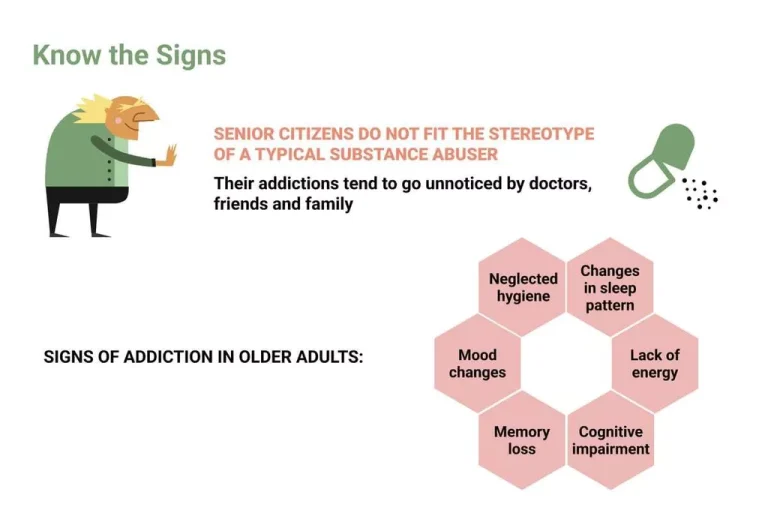
It takes tremendous strength and courage to face alcohol abuse and alcoholism head on. Substance abuse experts make a distinction between alcohol abuse and alcoholism (also called alcohol dependence). Unlike alcoholics, alcohol abusers have some ability to set limits on their drinking. However, their alcohol use is still self-destructive and dangerous to themselves or others. Not all alcohol abusers become full-blown alcoholics, but it is a big risk factor.
Alcohol intoxication FAQs:
If the person lives with an underlying alcohol use disorder, more symptoms may occur. If you think that you might experience alcohol intoxication, get a symptom assessment with the free Ada app. Or find out more about how our symptom checker works before you try it for yourself. Copyright © 2024, AddictionHelp.com The information provided by AddictionHelp.com is not a substitute for professional medical advice. View our editorial content guidelines to learn how we create helpful content with integrity and compassion.
- Alcohol poisoning is the dangerous result of consuming too much alcohol over a short period of time.
- For example, performing poorly at work, flunking classes, neglecting your kids, or skipping out on commitments because you’re hung over.
- She’s passionate about empowering readers to take care of their mental and physical health through science-based, empathetically delivered information.
- If you suspect someone is experiencing an alcohol overdose, you should call 911 immediately.
- People who binge drink have a higher risk of experiencing alcohol poisoning.
- Specifically, it slows areas of your brain that are responsible for basic life functions.
Factors of Alcohol Poisoning
If left untreated, alcohol poisoning can lead to medical complications (and, in some situations, death). When taking care of someone who has alcohol poisoning, it is important to stay calm and remain with the person until help arrives. Here are some more detailed tips as to what you can do to help keep a person with alcohol poisoning safe until professional help arrives. If you think that you might experience a warning sign or symptom of alcohol poisoning is alcohol intoxication, you can try using the Ada app to find out more about your symptoms. Alcohol poisoning from ingesting these non-beverage substances is more common in young children but may also happen if someone is dealing with a severe alcohol use disorder. Alcohol poisoning—also known as an alcohol overdose—happens when you have more alcohol in your bloodstream than your body can process.
Effects of alcoholism and alcohol abuse
For some people, these occasions may also include drinking—even binge or high-intensity drinking. BAC and the number of drinks you consume are very rough indicators of impairment. If you’ve drunk a dangerous amount of alcohol, doctors may “pump” your stomach.
- Other names for alcohol poisoning include alcohol overdose and ethanol toxicity.
- By keeping you from looking honestly at your behavior and its negative effects, denial also exacerbates alcohol-related problems with work, finances, and relationships.
- It also includes binge drinking — a pattern of drinking where a male has five or more drinks within two hours or a female has at least four drinks within two hours.
- In the emergency room, a doctor will check their BAC and look for other signs of alcohol poisoning, such as a slow heart rate and low blood sugar and electrolyte levels.
- Repeatedly neglecting your responsibilities at home, work, or school because of your drinking.
- It is important to keep hydrated and avoid drinking any alcohol.
- If you develop alcoholic hepatitis, you may be able to reverse the damage by permanently abstaining from alcohol.
- Brittany Burke Robert, the author of this article, has written about health for Oprah Daily, Well+Good, Livestrong, Reebok and other publications and digital brands for over 15 years.
- The stages of intoxication differ from person to person because they’re based on age, sex, weight, and other factors.
- A person with alcohol poisoning who has passed out or can’t wake up could die.
While many factors can contribute to the risk of alcohol abuse, individuals who start drinking in their adolescent years are more likely to suffer from alcoholism later on in life. Other influences such as stress and depression can also lead to chronic alcohol use, and possibly alcohol poisoning. If you feel that you sometimes drink too much alcohol, or your drinking is causing problems, or if your family is concerned about your drinking, talk with your health care provider.

Signs and symptoms of alcohol poisoning
Eventually, it becomes so high that your basic mental, physical and emotional functions are no longer able to work properly. However, a person can feel the effects of alcohol abuse and potentially trigger alcohol poisoning, even after they’ve stopped drinking. Your BAC levels keep increasing for up to 40 minutes after your last drink. There are a few biological factors that can increase your risk of alcohol poisoning. Additionally, men are more likely to experience alcohol poisoning, and account for roughly 75% of all alcohol-related deaths. In addition to the serious risk of death, alcohol poisoning can also lead to irreversible brain damage.
Alcohol poisoning can be life threatening and usually requires urgent medical treatment. People can survive alcohol poisoning if they receive appropriate treatment. Learn more about the short- and long-term effects of alcohol consumption here. Use of this website and any https://ecosoberhouse.com/ information contained herein is governed by the Healthgrades User Agreement. Always consult a medical provider for diagnosis and treatment. What tips the balance from drinking that produces impairment to drinking that puts one’s life in jeopardy varies among individuals.

